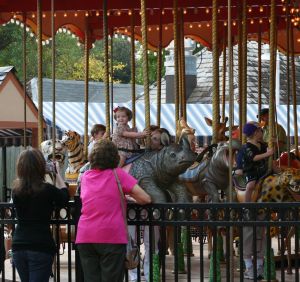
About a month ago, your Charleston personal injury lawyers discussed an awful accident involving a children’s ride in Spartanburg’s Cleveland Park. In March of this year a miniature train derailed and flipped into a ditch, and according to authorities, excessive speed was to blame for the accident that killed a 6-year-old boy and injured 28 others. This serious accident has prompted the South Carolina Labor Department to take a hard look at how our State’s amusement rides are inspected, especially considering the State’s safety inspector responsible for checking the ride admitted after the crash that he had falsified the report to approve the ride for operation because a dead battery prevented him from testing the ride. The weekend after the safety inspector cleared the ride that he never tested; it opened, derailed, and crashed on its first day of operation, the rest is horrific history. It should be noted that this particular inspector, in his more than three years of work, issued only a single violation.
Beginning September 1, 2011, the Department of Labor’s Licensing and Regulation division will use outside contractors to review a multitude of amusement rides and thousands of elevators around the State. Of course, these outsourced inspectors are specially licensed to do such safety reviews and inspections. As it is now, inspections have been done by state employees, which translates to only one set of eyes looking over South Carolina’s amusement rides and elevators. Authorities feel that having the outside contractors going behind the State’s work will be beneficial in preventing, and hopefully one day eliminating, fatal accidents like the one in Spartanburg.
As mentioned in the previous post concerning this deadly train accident, county officials blame the crash on excessive speed, noting that the train was traveling at 20 m.p.h, three times the recommended speed for such a ride. Officials were able to calculate the speed thanks to a video shot on a cell phone by one of the miniature train’s young passengers. One investigator and accident reconstruction specialist simply said, “Too Fast. That was the complete cause of the accident, just too fast.” The investigation has now been turned over to county prosecutors to determine if anyone will be criminally charged.
While the operator of the train made a statement during his ambulance ride to the hospital admitting the train was going to fast, his South Carolina lawyer has said his client was in shock at the time the statement was made. Additionally, as mentioned in the last post, the attorney for the train’s operator says his client is not totally to blame for the fatal accident. According to the operator’s attorney, the speedometer on the train wasn’t working properly and his client was never informed that there was a maximum speed he was not to exceed, and for the cause of this accident to be solely operator error, his client would have had to do something he was told not to do. Furthermore, he claims the device intended to restrict the train to a safe speed was never set correctly.
With that in mind, South Carolina Lawmakers in Columbia are considering a bill that would set new standards miniature train rides, mandating speedometers and devices that would restrict a ride’s speed.